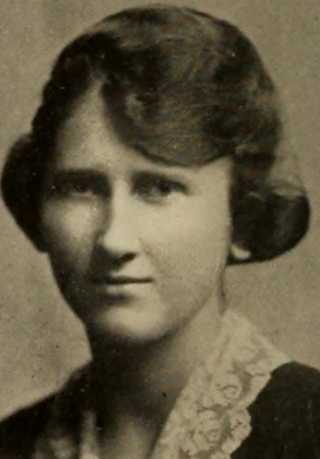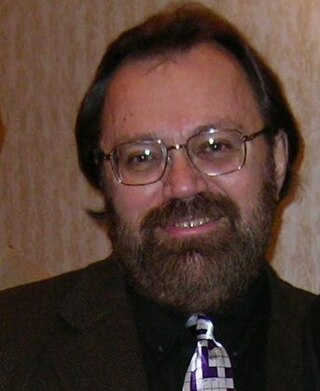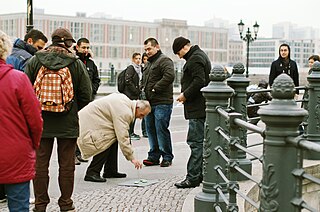
A crossword is a word puzzle that usually takes the form of a square or a rectangular grid of white- and black-shaded squares. The goal is to fill the white squares with letters, forming words or phrases that cross each other, by solving clues which lead to the answers. In languages that are written left-to-right, the answer words and phrases are placed in the grid from left to right ("across") and from top to bottom ("down"). The shaded squares are used to separate the words or phrases.
A cryptic crossword is a crossword puzzle in which each clue is a word puzzle. Cryptic crosswords are particularly popular in the United Kingdom, where they originated, Ireland, Israel, the Netherlands, and in several Commonwealth nations, including Australia, Canada, India, Kenya, Malta, New Zealand, and South Africa. Compilers of cryptic crosswords are commonly called "setters" in the UK and "constructors" in the US. Particularly in the UK, a distinction may be made between cryptics and "quick" crosswords, and sometimes two sets of clues are given for a single puzzle grid.
The National Puzzlers' League (NPL) is a nonprofit organization focused on puzzling, primarily in the realm of word play and word games. Founded in 1883, it is the oldest puzzlers' organization in the world. It originally hosted semiannual conventions in February and September of each year, but conventions are now held annually, in July.

William F. Shortz is an American puzzle creator and editor who is the crossword puzzle editor for The New York Times. He graduated from Indiana University with a degree in the invented field of "enigmatology". After starting his career at Penny Press and Games magazine, he was hired by The New York Times in 1993. Shortz's American Crossword Puzzle Tournament is the country's oldest and largest crossword tournament.
William Roland Hartston is an English journalist who wrote the Beachcomber column in the Daily Express. He is also a chess player who played competitively from 1962 to 1987 and earned a highest Elo rating of 2485. He was awarded the title International Master in 1972, but is now best known as a chess author and presenter of the game on television.
Insight is the understanding of a specific cause and effect within a particular context. The term insight can have several related meanings:

A scavenger hunt is a game in which the organizers prepare a list defining specific items, which the participants seek to gather or complete all items on the list, usually without purchasing them. Usually participants work in small teams, although the rules may allow individuals to participate. The goal is to be the first to complete the list or to complete the most items on that list. In variations of the game, players take photographs of listed items or be challenged to complete the tasks on the list in the most creative manner. A treasure hunt is another name for the game, but it may involve following a series of clues to find objects or a single prize in a particular order.
Games World of Puzzles is an American games and puzzle magazine. Originally the merger of two other puzzle magazines spun off from its parent publication Games magazine in the early 1990s, Games World of Puzzles was reunited with Games in October 2014.
The New York Times crossword puzzle is a daily American-style crossword puzzle published in The New York Times, online on the newspaper's website, syndicated to more than 300 other newspapers and journals, and on mobile apps.
Crosswordese is the group of words frequently found in US crossword puzzles but seldom found in everyday conversation. The words are usually short, three to five letters, with letter combinations which crossword constructors find useful in the creation of crossword puzzles, such as words that start and/or end with vowels, abbreviations consisting entirely of consonants, unusual combinations of letters, and words consisting almost entirely of frequently used letters. Such words are needed in almost every puzzle to some extent. Too much crosswordese in a crossword puzzle is frowned upon by cruciverbalists and crossword enthusiasts.

Margaret Petherbridge Farrar was an American journalist and the first crossword puzzle editor for The New York Times (1942–1968). Creator of many of the rules of modern crossword design, she compiled and edited a long-running series of crossword puzzle books including the first-ever book of any kind published by Simon & Schuster.

Merl Harry Reagle was an American crossword constructor. For 30 years, he constructed a puzzle every Sunday for the San Francisco Chronicle, which he syndicated to more than 50 Sunday newspapers, including the Washington Post, the Los Angeles Times, the Philadelphia Inquirer, the Seattle Times, The Plain Dealer, the Hartford Courant, the New York Observer, and the Arizona Daily Star. Reagle also produced a bimonthly crossword puzzle for AARP The Magazine magazine, a monthly crossword puzzle for the Society of Former Special Agents of the FBI, and puzzles for the American Crossword Puzzle Tournament.
Beaner is a derogatory slur originally from the United States to refer to individuals of Hispanic or Latino descent, particularly those that are Mexicans from Mexico or of Mexican American descent.

The eureka effect refers to the common human experience of suddenly understanding a previously incomprehensible problem or concept. Some research describes the Aha! effect as a memory advantage, but conflicting results exist as to where exactly it occurs in the brain, and it is difficult to predict under what circumstances one can predict an Aha! moment.
Jan Buckner Walker is a nationally syndicated crossword puzzle creator, author and games creator.

A guess is a swift conclusion drawn from data directly at hand, and held as probable or tentative, while the person making the guess admittedly lacks material for a greater degree of certainty. A guess is also an unstable answer, as it is "always putative, fallible, open to further revision and interpretation, and validated against the horizon of possible meanings by showing that one interpretation is more probable than another in light of what we already know". In many of its uses, "the meaning of guessing is assumed as implicitly understood", and the term is therefore often used without being meticulously defined. Guessing may combine elements of deduction, induction, abduction, and the purely random selection of one choice from a set of given options. Guessing may also involve the intuition of the guesser, who may have a "gut feeling" about which answer is correct without necessarily being able to articulate a reason for having this feeling.

A logogriph is a form of word puzzle based on the component letters of a key word to be identified, and is derived from Greek λόγος, a word, and γρίφος, a riddle or fishing basket. It generally involves anagrams or other wordplay treatments such as addition, subtraction, omission, or substitution of a letter, and is sometimes arranged in the form of a verse giving hints to the word. The term logogriph is also used for the puzzle type in which a pair of anagrams must be deduced from synonyms.

Ask Me Another is an hour-long radio puzzle game show that was produced by WNYC and National Public Radio. It was hosted by Canadian American comedian Ophira Eisenberg and featured as its "in-house musician" or "one-man house band" independent rock musician Jonathan Coulton. Episodes of the show were usually recorded at The Bell House in Brooklyn, New York, however the show did go to various states across the country and recorded one or more episodes from those locations. The show was produced by WNYC Studios. During the COVID-19 pandemic in the United States, the show continued taping episodes from the homes of the participants, without a studio audience.

A spiral puzzle is a word puzzle in the form of a spiral. The puzzle is formed of a long chain of letters, which spell out a list of clued words when read in either direction. The solutions to the left are entered in the boxes from 1 to 100. The responses to the right provide another set of words that must be entered from 100 to 1. The final solution can consist of a number of boxes, sometimes in colored horizontal, vertical or diagonal rows.

The New York TimesSpelling Bee, or simply the Spelling Bee, is a word game distributed in print and electronic format by The New York Times. Created by Frank Longo, the game debuted in a weekly print format in 2014, with a digital daily version with an altered scoring system launching on May 9, 2018.










